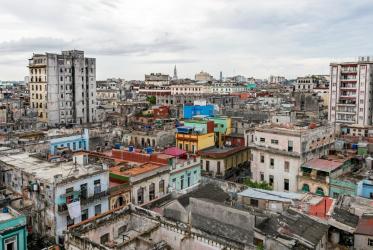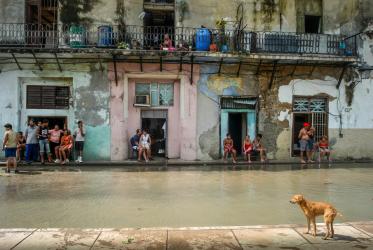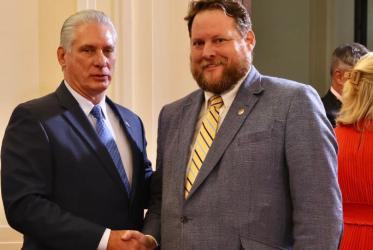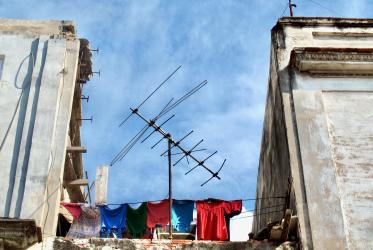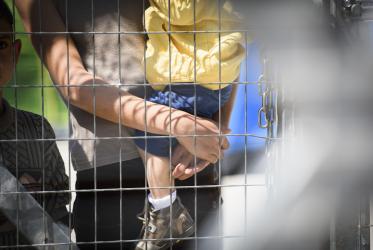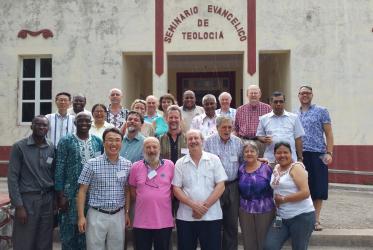Displaying 1 - 20 of 27
Nordic churches: “take our human responsibility”
12 March 2020
Dealing with traumas and healing of wounds
04 June 2019
#WCC70: A night talk with Fidel Castro
06 September 2018
Diakonia: “a tool to reach abundance of life”
24 July 2018
Seven weeks of Lent highlight water justice in Latin America
12 February 2018
Contributing to God’s mission takes many forms, finds gathering in Cuba
20 September 2016
WCC/UN conference calls for coordinated action on refugee crisis
20 January 2016
Theologian explores emerging model of empowerment and diakonia
17 December 2015
Land rights focus of panel discussion
17 November 2015
WCC urges responsibility for and support to the refugees in Europe
04 September 2015
